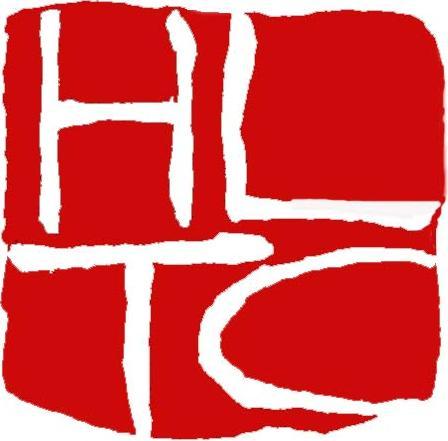COMP 4911 - Spring 2018
Fall 2018, COMP 4911 IT Entrepreneurship
[3-0-1:3]
Lecture 1, MoWe 09:00-10:20, Rm 6602
Prof. Dekai WU, Rm 3539,
2358-6989, dekai@cs.ust.hk
You are welcome to knock on the door of the instructor any time. The TAs' office hours are posted at http://course.cs.ust.hk/comp4911/ta/.
ANNOUNCEMENTS
Welcome to COMP4911!
Always check the Discussion Forum for up-to-the-minute
announcements.
Discussion forum is at http://comp151.cse.ust.hk/~dekai/content/?q=forum/1.
Always read before asking/posting/emailing your question. You must
register for your account at the first lecture, tutorial, or lab.
Course home page is at http://www.cs.ust.hk/~dekai/4911/.
Tutorial info is at http://course.cs.ust.hk/comp4911/ta/.
ORIENTATION
Course Outcomes
Upon successful completion of the course, students should be able to:
- Be able to clearly formulate, articulate, and pitch a technology based startup business
- Identify the basic principles and practices involved in either starting a company or planning to work in a start-up company, and any pitfalls to be avoided
- Summarize the basic principles of IT entrepreneurship
- Recognize and act upon opportunities for building a personal business network
- Evaluate potential business opportunities and develop appropriate decision-making skills so as to take best advantage of those opportunities
Course Description
COMP 4911. Basic elements of starting a new business in information technology; exploiting an "unfair" advantage; preparing a business plan; arranging financial support; accounting and legal requirements; exit strategy. Case studies of successful and failed ventures in Hong Kong and elsewhere. Exclusion(s): ELEC 3710 Prerequisite(s): COMP 2011 OR COMP 2012H
BOOKS
There is no textbook for COMP4911 per se, but we will rely on many books.
- High Tech Start Up (revised edition), by John L. NESHEIM. Free Press, 2000. ISBN-13: 978-0684871707
- The Lean Startup, by Eric RIES. Crown Business, 2011. ISBN-13: 978-0307887894
- Creating Value with CO-STAR, by Laszlo GYORFFY and Lisa FRIEDMAN. Enterprise Development Group, 2012. ISBN-13: 978-0-9859419-0-1.
- Hot Seat: The Startup CEO Guidebook, by Dan SHAPIRO. O'Reilly, 2015. ISBN-13: 978-1449360733.
- The Hard Thing About Hard Things: Building a Business When There Are No Easy Answers, by Ben HOROWITZ. HarperBusiness, 2014. ISBN-13: 978-0062273208.
- The Inevitable, by Kevin KELLY. Viking, 2016. ISBN-13: 978-0525428084.
- TED Talks: The Official TED Guide to Public Speaking, by Chris ANDERSON. Houghton Mifflin Harcourt, 2016. ISBN-13: 978-0544634497.
- slide:ology: The Art and Science of Creating Great Presentations, by Nancy DUARTE. O'Reilly, 2008. ISBN-13: 978-0596522346.
- The Mythical Man-Month: Essays on Software Engineering (2nd Edition), by Frederick P. BROOKS, Jr. Addison-Wesley, 1995. ISBN-13: 978-0201835953.
Blogs
HONOR POLICY
To receive a passing grade, you are required to sign an honor statement acknowledging that you understand and will uphold all policies on plagiarism and collaboration.Plagiarism
All materials submitted for grading must be your own work. You are advised against being involved in any form of copying (either copying other people's work or allowing others to copy yours). If you are found to be involved in an incident of plagiarism, you will receive a failing grade for the course and the incident will be reported for appropriate disciplinary actions.
University policy requires that students who cheat more than once be expelled. Please review the cheating topic from your UST Student Orientation.
Warning: sophisticated plagiarism detection systems are in operation!
Collaboration
You are encouraged to collaborate in study groups. However, you must write up solutions on your own. You must also acknowledge your collaborators in the write-up for each problem, whether or not they are classmates. Other cases will be dealt with as plagiarism.GRADING
The course will be graded on a curve, but no matter what the curve is, I guarantee you the following.
| If you achieve | 85% | you will receive at least a | A | grade. |
| 75% | B | |||
| 65% | C | |||
| 55% | D |
Your grade will be determined by a combination of factors:
| Participation | ~30% |
| Assignments | ~70% |
Examinations
Grading of COMP4911 will be based on the participation and assignments, since entrepreneurship is not a skill that can be well measured by written exams.
Participation
Business and entrepreneurship is heavily about communication between people. Science and engineering (including software engineering!) is about communication between people. To reflect this, good participation in class and/or the online forum will count for a significant proportion of the grade.
Assignments
All assignments must be submitted by 23:00 on the due date. Assignments will be collected electronically using the automated CASS assignment collection system. Late assignments cannot be accepted. Sorry, in the interest of fairness, exceptions cannot be made.
Tutorials
All information for tutorials is at http://course.cs.ust.hk/comp4911/ta/.
SYLLABUS
| Date | Wk | Event | Topic | |
| 2018.02.05 | 2 | Lecture | Welcome, forum registration Admiinistrivia (honor statement, HKUST classroom conduct) |
|
| 2018.02.05 | 1 | Lecture | Course overview | |
| 2018.02.12 | 2 | Lecture | Crafting your 15-second elevator speech (rounds 1 & 2); I didn't have time to write a short letter, so I wrote a long one instead ― Mark Twain | 15-second elevator pitch presentations due at beginning of class |
| 2018.02.12 | 2 | Lecture | Crafting your 15-second elevator speech (round 3); Your throughline | 15-second elevator pitch presentations due at beginning of class |
| 2018.03.05 | 2 | Lecture | Why entrepreneurship? | |
| 2018.03.05 | 4 | Lecture | Why entrepreneurship? (cont'd); Forbes' 20 Startups To Watch In 2016 | |
| 2018.03.05 | 4 | Lecture | Why entrepreneurship? (cont'd) | Group information and company topic due |
dekai@cs.ust.hk
Last updated: 2018.02.07
